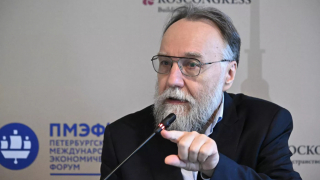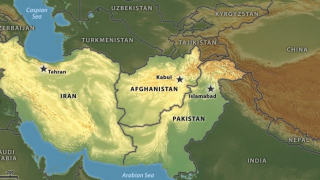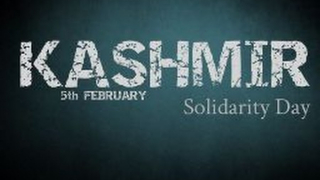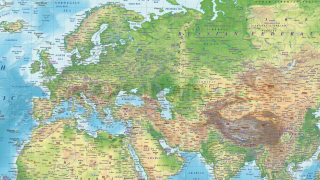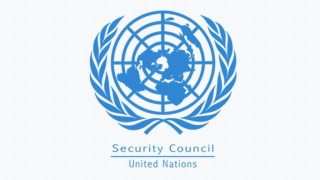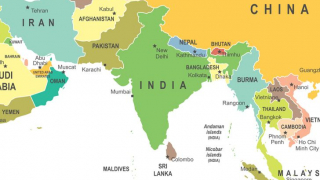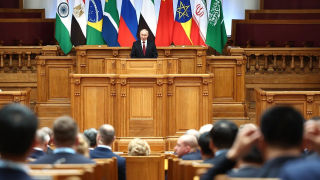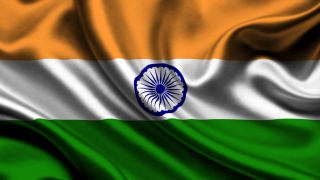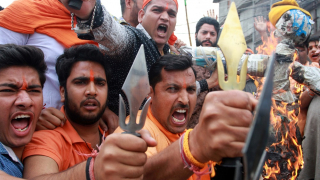Digital Diplomacy against PAkistan – India’s new agenda
From maligning Pakistan in foreign media to try to sabotage Pakistan’s growth on every other front, India has never missed a chance to hurt her neighbor state. The only difference that occurred is that india has now adopted newer strategies to follow its malicious plans. According to a report published by BBC, a coordinated network of 265 websites across 65 countries, are aimed at influencing decision-making in Europe. The report is based on a report by the EU Disinfo Lab, a Brussels-based NGO. The researchers traced back the websites to an Indian company called Srivastava Group. The researchers also found the websites to be involved with groups lobbying anti-Pakistan events in Europe.
Though there is no event for the websites to be linked back to the Indian government, researchers believe the website network’s purpose is to spread propaganda against Pakistan. Alexandre Alaphilippe, executive director of EU Disinfo Lab, told the BBC, "More than the fake media outlets alone, it is their combination with the fake NGOs that's really worrying because it provides a mirage of online and grassroots support to a cause. That's exactly where the disinformation lies."
Delhi-Based Srivastava Group is “The Epicenter of a Vast Network of Fake News Sites”, the Srivastava Group also owns the Indian Institute of Non-Aligned Studies (IINS) the think tank behind the recent visit by 27 Members of European Parliament to Kashmir.
This network targeted Members of the European Parliament (MEPs) with content that served Indian geopolitical interests, through plagiarism, syndication and republication of propaganda pieces and dubious articles. EU funded group called EUvsDisnfo found that a Brussels-based website called EP Today was syndicating large number of articles from Russia Today and Voice of America to target MEPs.
Going through their (now deleted) Facebook page, EUvsDisinfo found that the page was managed from India. Further research by EU DisinfoLab revealed that EP Today had several ties to Delhi-based Srivastava Group whose Brussels address was found to be the same as that of EP Today.
Srivastava Group also owns New Delhi Times an obscure Delhi-based online newspaper that posts highly plagiarised or syndicated articles, and the Indian Institute of Non-Aligned Studies (IINS), a Delhi-based think tank.
Both EP Today and Times of Geneva were found to regularly post content that was aimed at shaping perceptions on Pakistan, and promoting India's geopolitical interests in South Asia. They further conducted a series of open source intelligence investigations to reveal a network of obscure NGOs, think tanks and online "newspapers" that worked together to create content influence perception.
The researchers also found a vast network of English websites furthering India’s lobbying interests. The Lab has labeled some websites as ‘zombie’ sites as most of them have names of defunct newspapers and copied content from the defunct newspapers. The websites were to publish most syndicated content from popular news websites and publish anti-Pakistan stories and opinion articles authored by employees of NGOs linked to the network.
The Times of Geneva that published a lot of video content and is considered sophisticated among the rest seem to influence the decision-makers at the UN. The website hasn’t been updated since November 19; a few days after the Lab announced the discovery of the network. When contacted by the BBC, the website cut-off the call. The website’s YouTube channel has been disabled and its Twitter has been suspended.
How could you know that your local news website, such as newyorkmorningtelegraph.com, thedublingazette.com, or timesofportugal.com serves Indian governmental interests?
Over 265 fake local news sites in more than 65 countries are managed by an Indian influence network.
Here’s the story of how we uncovered this network designed to influence the EU and the UN by repeatedly criticising Pakistan.
In early October, the European External Action Service’s East StratCom (the EU Disinformation Task Force) revealed that – eptoday.com – the website of a self-proclaimed magazine for the European Parliament in Brussels – had been re-publishing a large amount of news directly from Russia Today and Voice of America. Among this syndicated content, we unexpectedly found a large number of articles and op-eds related to minorities in Pakistan as well as other India-related matters.
EU DisinfoLab quickly discovered that EP Today is managed by Indian stakeholders, with ties to a large network of think tanks, NGOs, and companies from the Srivastava Group. We also found that the IP address of the Srivastava Group is also home to the obscure online media “New Delhi Times” and the International Institute for Non-Aligned Studies (IINS), which are all based at the same address in New Delhi, India.
A few weeks later, 27 Members of the European Parliament were invited by IINS to visit Kashmir and to meet with Prime Minister Modi. This was covered by the press, and journalists began to link our discovery to the funders and organisers of this “controversial visit”, the International Institute for Non-Aligned Studies (IINS) and the direct entourage of EP Today.
Using OSINT (Open-Source Intelligence) techniques, we continued our investigation into this network, and this led us to Geneva, where the UN Refugee Agency has its headquarters. There, we discovered timesofgeneva.com – an online “newspaper” that is “approaching 35 years in business”. Strangely enough, Times of Geneva publishes the same type of content as EP Today and produces videos covering events and demonstrations criticising Pakistan’s role in the Kashmir conflict.
We found hard evidence that both EP Today and Times of Geneva have extremely strong ties with a network of NGOs and think tanks, such as the European Organization for Pakistani Minorities (EOPM), and Pakistani Women’s Human Rights Organization. Specifically, the websites of these NGOs and think tanks are hosted on the same servers and/or staff have worked for one of these previous organisations while publishing articles for EP Today. We also proved that the two influence networks (Brussels and Geneva) were interconnected by discovering links between website registration addresses, email addresses, and domain names.
In view of this, both networks serve lobbying interests, with Brussels towards the European Union, and Geneva towards the United Nations – all achieved while providing extended visibility to former MEPs and MPs. These organisations have been active for several years (at least since 2010 for EP Today).
Digging further into servers, IP Addresses, and Twitter accounts led us to 4newsagency.com, which presents itself as a “synergy between 4 news agencies from Switzerland, Belgium, Thailand, and Abu Dhabi (UAE)”, with “teams located in 100 countries”. Once more, we observed the same modus operandi as EP Today and Times of Geneva:
-
Content syndication (republishing content already available);
-
Contact address located in a co-working space/office;
-
Extensive coverage of Indian-related matters.
Tipped off by 4newsagency.com itself and by the presence of Canadian and American (now offline) NGOs and think tanks on the same servers as EP Today and Srivastava Group, we discovered an additional network of over 265 resurrected media in more than 65 countries, following a similar modus operandi.
Here are some findings from these websites:
-
Most of them are named after an extinct local newspaper or spoof real media outlets;
-
They republish content from several news agencies (KCNA, Voice of America, Interfax);
-
Coverage of the same Indian-related demonstrations and events;
-
Republications of anti-Pakistan content from the described Indian network (including EP Today, 4NewsAgency, Times Of Geneva, New Delhi Times);
-
Most websites have a Twitter account as well.
One may wonder: why have they created these fake media outlets? From analysing the content and how it is shared, we found several arguments to do so:
-
Influence international institutions and elected representatives with coverage of specific events and demonstrations;
-
Provide NGOs with useful press material to reinforce their credibility and thus be impactful.
-
Add several layers of media outlets that quote and republish one another, making it harder for the reader to trace the manipulation, and in turn (sometimes) offer a “mirage” of international support.
-
Influence public perceptions on Pakistan by multiplying iterations of the same content available on search engines.
India has the most social media users, with 300 million users on Facebook, 200 million on WhatsApp and 250 million using YouTube. TikTok, the video messaging service owned by a Chinese company, has more than 88 million users in India. And there are Indian messaging applications such as ShareChat, which claims to have 40 million users and allows them to communicate in 14 Indian languages.
Fake stories are spread by legions of online trolls and unsuspecting users, with dangerous impact. A rumor spread through social media about child kidnappers arriving in various parts of India has led to 33 deaths in 69 incidents of mob violence since 2017, according to IndiaSpend, a data journalism website.
In the lead-up to the elections, the Indian government summoned the top executives of Facebook and Twitter to discuss the crisis of coordinated misinformation, fake news and political bias on their platforms. In March, Joel Kaplan, Facebook’s global vice president for public policy, was called to appear before a committee of 31 members of the Indian Parliament - who were mostly from the ruling Bharatiya Janata Party - to discuss “safeguarding citizens’ rights on social/online news media platforms.”


